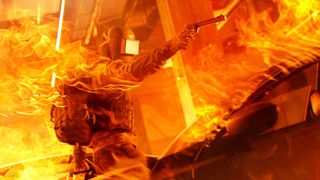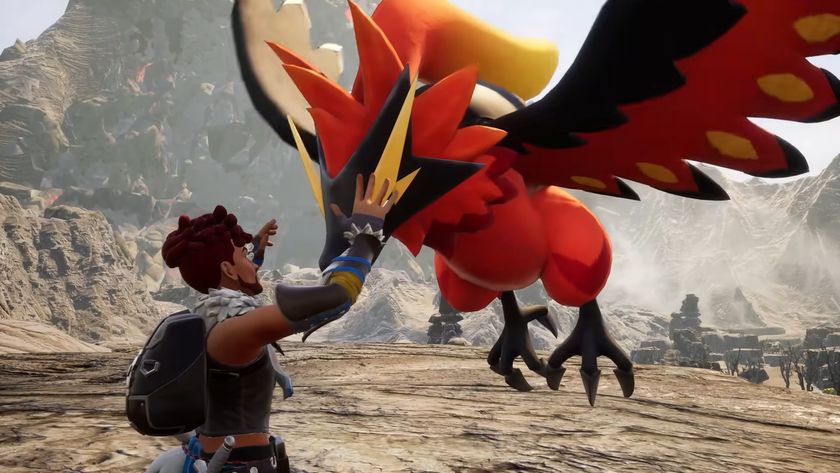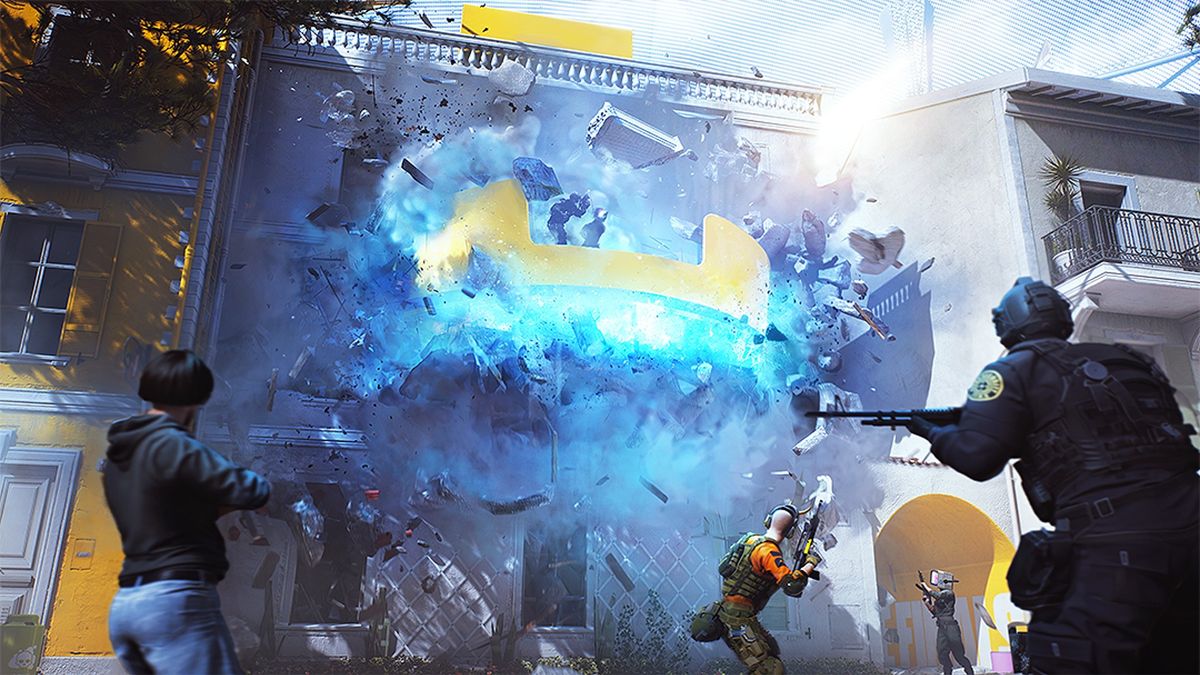
I'm fond of a destructive approach to The Finals, but what's happening around me now is ridiculous. The efforts of my 'All Heavy, All Sledgehammer' team are being put to shame as the entire cathedral at the heart of the Monaco map falls down around me. This is Power Shift, a new game mode coming to The Finals as part of Season 2, a Payload-style push-and-pull in which the central platform utterly annihilates any structure it comes into contact with.
"With previous game modes, destruction has been more separated" senior environment artist Joakim Stigsson tells me in an interview. "Now, it's more focused around the gameplay objective. We've always had the tech, but with the new game mode we're introducing a way to really leverage the destruction." "That's the beauty of systemic design," creative director Gustav Tilleby adds. "[The destruction] is not bespoke, built for a specific thing. It's more of a general system. And once you have that, you can do all sorts of things."
I'm talking with Stigsson, Tilleby, and brand director Sven Gundberg ahead of The Finals Season 2, which is introducing a suite of additions; this new mode, a new map, new weapons and gadgets are all being added alongside private matches and a revamped Ranked system. It's a substantial overhaul, but for Tilleby, one thing in particular stands out.
Hackerman
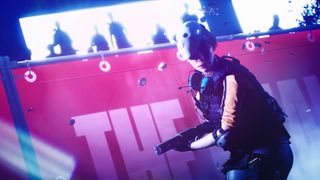
"One thing that I, personally, am really happy about is how the theme works." The Finals is set in a complex virtual reality game show, but in Season 2, that show has been hacked, a mysterious in-fiction group called CNS striving to make their mark on the broadcast. To me, it's a peculiar addition - the deep lore of The Finals is not something I thought I needed - but Tilleby stands by it. "It goes to show that this game world has a lot of elasticity, and that's always what we were hoping for when we started. I wanted to create a game concept that allows us to say 'yes' more often than we're forced to say 'no'."
The arrival of CNS means a very different kind of map. Having seized the game show's assets, the hackers have created their own arena, but while previous maps were inspired by real-life locations like Seoul or Monaco, this one is dripping with 80s influence, an Arcade Miami Vice crossover that affects buildings and vistas, but also the architecture itself. 'Voxel bridges' offer "a completely different way of traversing the map," Stigsson explains. "We also have these voxel cubes that allow for more vertical gameplay."
Those map-building tools combine with a set of new gadgets that also speak to CNS's larger-than-life presence within The Finals. It's clear that Embark is trying to round out some of the weaknesses in each individual class - offering support tools for the Light, destruction for the Medium, traversal for the Heavy - but it's pushing The Finals' gamification further with these new toys; portals, dematerialization blasts, and anti-gravity cubes are a notable departure from the more grounded gadgets of Season One. It's a fun set of additions, but beyond that, they're part of a sense throughout the second season that this is Embark trying to push itself a little further than before.
"I think this season is kind of a testament to that," Tilleby says. "The new map we made and the hacker playstyle are adding new ways to play, but it still feels like it fits into this world, so that's very encouraging to me. I think it proves to us that we have a lot of flexibility and a lot of maneuverability."
Sign up to the 12DOVE Newsletter
Weekly digests, tales from the communities you love, and more

"We're learning a lot. The first season for us was a huge learning experience."
I ask about the cadence around that flexibility - The Finals did see a gradual, but substantial, dip in players across Season One, with sentiments in the community that new content was needed to keep things fresh. That's a common difficulty for live-service games to overcome, but there's a quiet confidence that Season Two marks a substantial improvement for The Finals.
"I think we're getting better," Grundberg says. "We're learning a lot. The first season for us was a huge learning experience." Stigsson agrees: "I think what's been cool to see now, throughout the first season and going into the second season, is the way we managed to go from an idea to implementing in game. We've been working a lot with the tools and the tech and the workflow that we have. I think now we're at the point where we feel we have a cadence that works."
Among the trio's obvious pride in the ways that Embark has improved on its game, however, is a quiet testament to the perennial precariousness that any title in this space can come up against, even something as successful as The Finals: "Based on what I hear, I think we are getting into the groove in a way," Grundberg concludes, "but I don't think we're ever going to be there there."
Love shooters? Here are 25 of the best FPS games you play right now

I'm GamesRadar's news editor, working with the team to deliver breaking news from across the industry. I started my journalistic career while getting my degree in English Literature at the University of Warwick, where I also worked as Games Editor on the student newspaper, The Boar. Since then, I've run the news sections at PCGamesN and Kotaku UK, and also regularly contributed to PC Gamer. As you might be able to tell, PC is my platform of choice, so you can regularly find me playing League of Legends or Steam's latest indie hit.
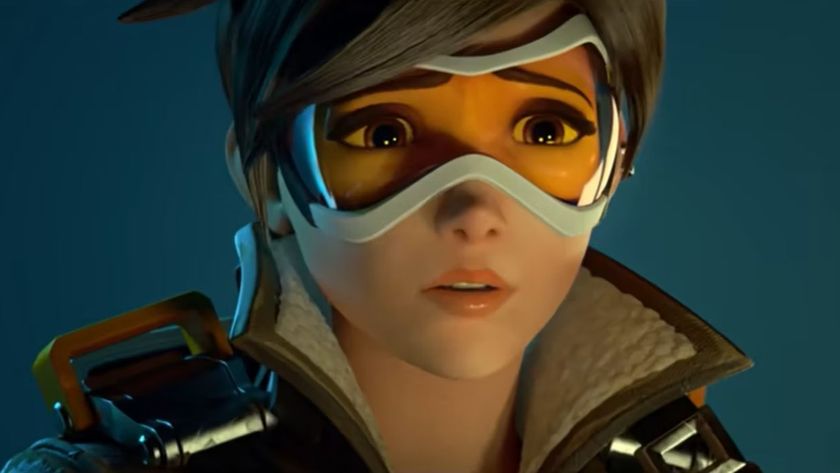
After struggling to make sequel-sized changes, fans think Blizzard might retire the '2' in Overwatch's name based on Season 16 leaks
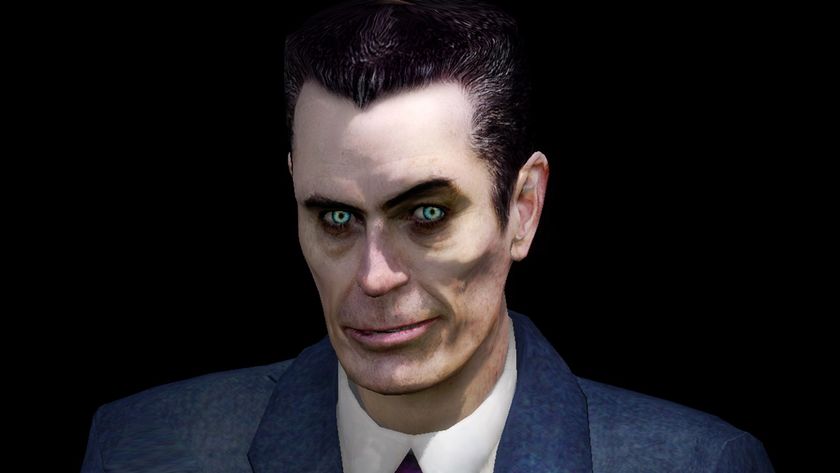
Valve leads considered making a "mediocre" game before Half-Life to build the team up, but original marketing exec said "if you do that, the company will fail"
